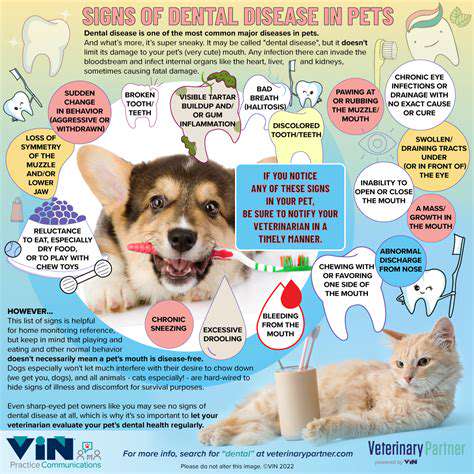Mixed Breed vs Purebred: Which Is Right for You?
Understanding Purebred Definitions
When we talk about purebred animals, we're referring to creatures with a documented ancestry that can be traced back through generations. Breeders invest years in carefully matching partners to uphold established breed standards. This attention to detail helps maintain consistent physical features and personality traits, offering some predictability. The detailed records kept by breeders can reveal potential health concerns and highlight desirable qualities, though they don't promise perfection.
Kennel clubs and breed associations create guidelines that describe the perfect specimen for each breed, covering everything from appearance to temperament. These benchmarks help breeders make informed decisions when selecting mates, ensuring the continuation of preferred characteristics.
The Predictability Factor
Many people choose purebred animals because they offer some degree of predictability. Breeders who focus on consistency select partners based on ancestry and expected results. This dedication to preserving bloodlines often leads to animals with more predictable physical and behavioral traits.
However, it's important to note that this predictability has limits. While a purebred dog will typically show characteristics common to its breed, each animal is unique. Factors like environment, training, and random genetic variations can all influence how an animal develops.
Maintaining the Heritage
Preserving a purebred's heritage is a serious responsibility. Breeders carefully track family histories to ensure animals meet breed standards and minimize health risks. This commitment links today's animals to their ancestors and the breed's history.
Keeping breed characteristics consistent requires health testing and careful selection of breeding pairs to reduce inherited health issues. Maintaining genetic diversity within the breed is equally important to prevent inbreeding and protect the overall health of the bloodline.
Health Considerations in Purebreds
While purebreds offer some predictability, they can be prone to specific health problems due to their limited gene pool. Responsible breeders conduct health screenings to identify and reduce these risks.
Health concerns vary widely between breeds. Prospective owners should research breed-specific health issues thoroughly. Regular vet visits and preventive care are essential for all purebred animals, regardless of their breed's typical health profile.
The Role of Breed Standards
Breed standards are crucial in defining what makes a purebred animal. These guidelines, created by breed organizations, specify ideal physical traits, temperament, and health characteristics. Following these standards helps maintain each breed's unique identity.
It's worth noting that breed standards evolve over time. Breeders and enthusiasts regularly discuss and update these guidelines to reflect current knowledge and preferences.
Considering Temperament and Health: A Crucial Factor
Understanding Temperament Variations
Choosing a dog involves careful consideration of temperament, whether purebred or mixed. Mixed breed dogs, known for their adaptability, can display a wide range of personalities influenced by their varied ancestry. Spending time with potential pets and observing their behavior with people and other animals offers valuable insights. This evaluation helps determine if a dog will fit well with a particular family's lifestyle and living situation.
Purebred dogs, while often associated with certain temperamental traits, still show individual differences. While breed descriptions provide general guidance, each dog has its own personality. Researching typical breed characteristics helps owners prepare for potential challenges and create a suitable environment.
Evaluating Health Considerations
Health is another critical factor in pet selection. Mixed breed dogs may have lower risks for certain genetic conditions due to their diverse backgrounds, but they aren't immune to health problems. A complete veterinary examination and thorough health history review are essential before adoption.
Purebred dogs can be more susceptible to specific inherited conditions because of their narrower gene pool. Prospective owners should educate themselves about these potential issues and discuss prevention strategies with their veterinarian.
Addressing Lifespan and Care Requirements
All dogs require dedicated care throughout their lives. Understanding a dog's expected lifespan and specific needs is crucial for providing proper care. Factors like nutrition, exercise, and socialization significantly impact a dog's quality of life and the strength of the human-animal bond.
Care requirements vary between breeds and individual dogs. Purebred dogs often have breed-specific needs, while mixed breeds may be more adaptable but still require attention to their unique requirements.
Lifestyle Considerations: Finding the Perfect Match

Prioritizing Physical Health
Maintaining good health requires consistent effort. Regular physical activity forms the foundation of wellness, supporting heart health, muscle development, and weight control. Activities should be enjoyable to encourage long-term participation.
A nutritious diet featuring plenty of fruits, vegetables, lean proteins, and whole grains provides essential nutrients. Reducing intake of processed foods and excessive fats promotes better long-term health outcomes. Mindful eating habits also contribute to digestive health and weight management.
Mindfulness and Stress Management
Modern life often brings high stress levels. Practices like meditation and controlled breathing can effectively reduce tension and improve mental clarity. These techniques help regulate the body's stress response and promote relaxation.
Developing healthy coping mechanisms is essential. Engaging in enjoyable activities, spending time outdoors, or pursuing creative outlets can all contribute to emotional balance. Making self-care a priority strengthens resilience and improves quality of life.
Social Connections and Support Systems
Meaningful relationships significantly impact emotional well-being. Building strong connections with friends, family, and community members creates a valuable support network. Regular interaction and shared experiences strengthen these bonds and enhance life satisfaction.
Financial Wellness
Financial stability contributes to overall peace of mind. Creating and following a budget, managing debt responsibly, and planning for future needs are all important. Developing sound financial practices reduces money-related stress and provides security.
Time Management and Productivity
Effective time management increases efficiency and reduces stress. Setting priorities, establishing realistic objectives, and breaking tasks into manageable steps all help. Good organizational skills lead to greater productivity and improved work-life balance.
Sleep Hygiene and Rest
Quality sleep is essential for health and well-being. Establishing consistent sleep patterns and creating a restful bedroom environment promote better sleep. Adequate rest is fundamental for physical recovery and mental sharpness.
Purpose and Meaning in Life
Having a sense of purpose contributes significantly to happiness. Identifying personal values and pursuing meaningful activities provides direction. Engaging in fulfilling pursuits creates motivation and helps navigate life's challenges.
Contributing to something larger than oneself, whether through volunteer work or creative expression, enhances life satisfaction. Discovering personal passions leads to a more rewarding life experience.

Read more about Mixed Breed vs Purebred: Which Is Right for You?
Hot Recommendations
- Customized Sleep Schedules: AI Driven for Sustainable Rest
- Crafting a Personalized Productivity Plan for Mental Clarity
- Sustainable Self Compassion: Cultivating Kindness Towards Your Mind
- Sustainable Productivity Hacks for the Busy Professional
- Sustainable Wellness for Parents: Balancing Family and Self Care
- Data Informed Self Care: Designing Your Personalized Wellness Strategy
- Sustainable Wellness for a Purpose Driven Life
- AI Assisted Mindfulness: Personalized Meditations for Deeper Practice
- Building Inclusive Mental Health Services: Key Initiatives
- AI Powered Self Care: Customizing Your Routine for Maximum Impact











